Historically, economists have often looked towards the manufacturing job data in monthly U.S Bureau of Labor Statistics jobs reports as a leading indicators of economic health. We believe due to the globalization of manufacturing and increase in imported goods, US economic health is better reflected by the transportation and warehousing jobs numbers and not manufacturing. We will make a case for transportation & warehousing jobs as a leading economic indicator. Presently GDP is made up 68% by the U.S consumer, meaning consumer spending activity is a major component of the health of the economy. Current trends show consumer spending activity is increasingly done online as evident in the U.S Census Bureau’s data on the total percent of sales from online vs offline retail:
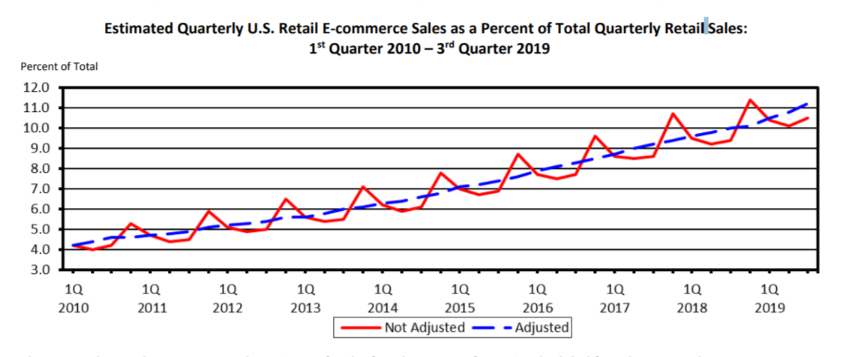
The continued rise of eCommerce is resulting in the increase in warehouse and transportation jobs to fulfill online sales. A comparison of government jobs data from the U.S bureau of labor statistics shows us the differing trends between manufacturing and transportation and warehousing data:
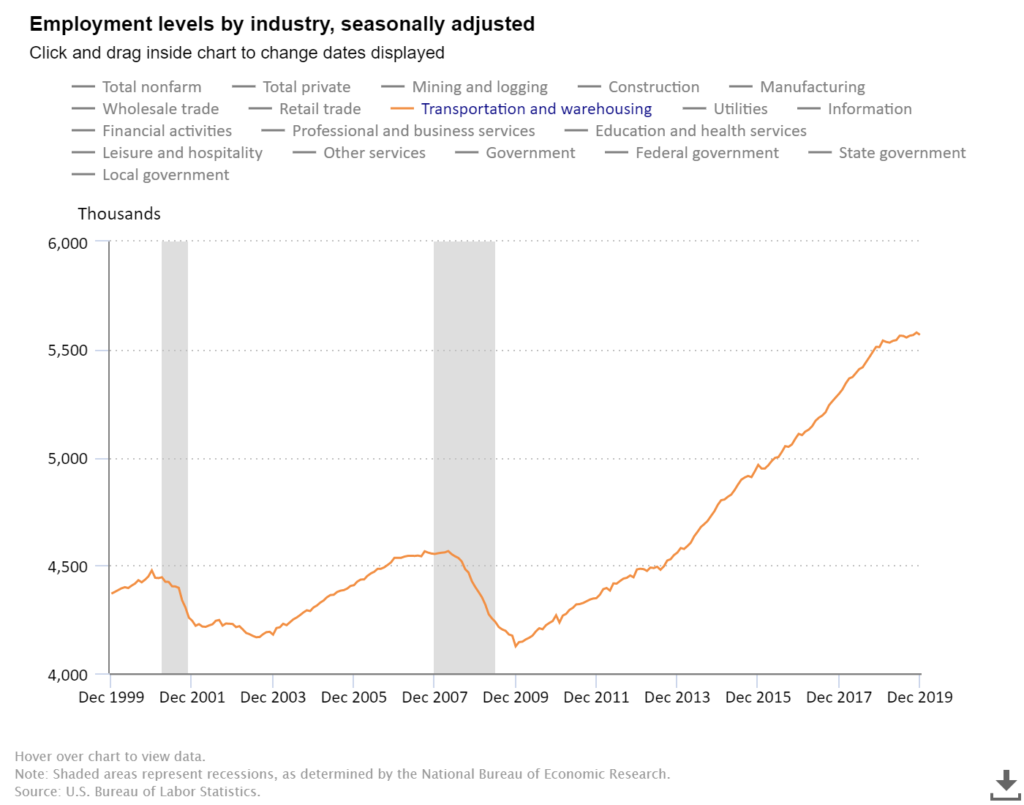
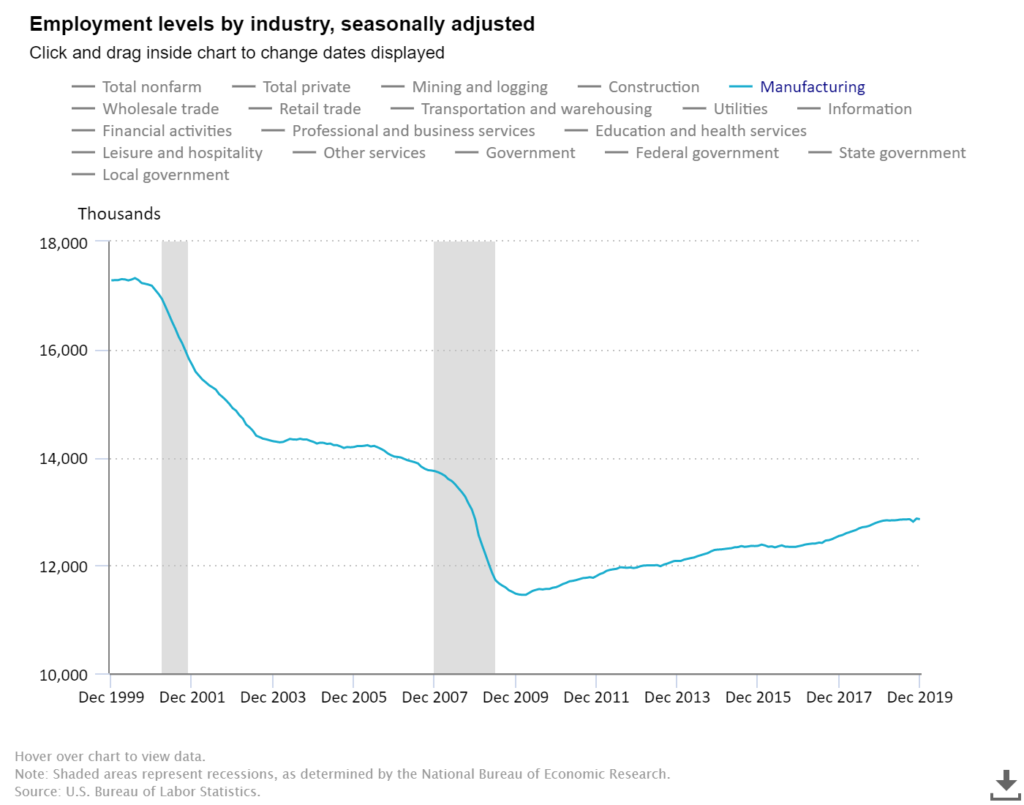
From the charts, it is clear looking at the correlation between the jobs data and the stock market over the same period of time shows the stronger relationship with transportation/warehousing data:
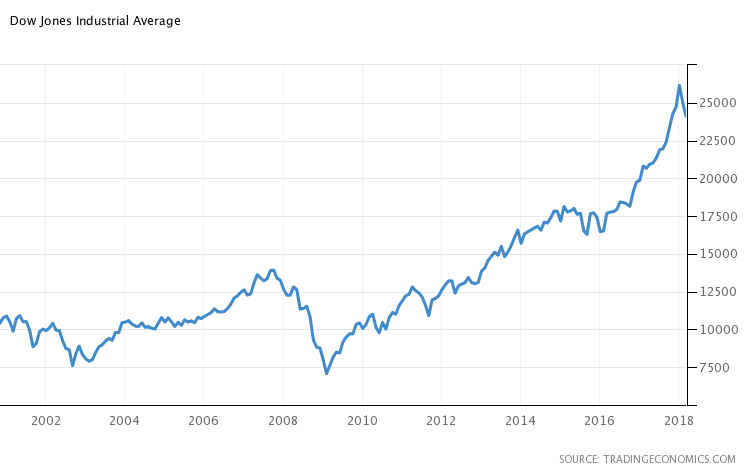
Equally upheld is the relationship to GDP:
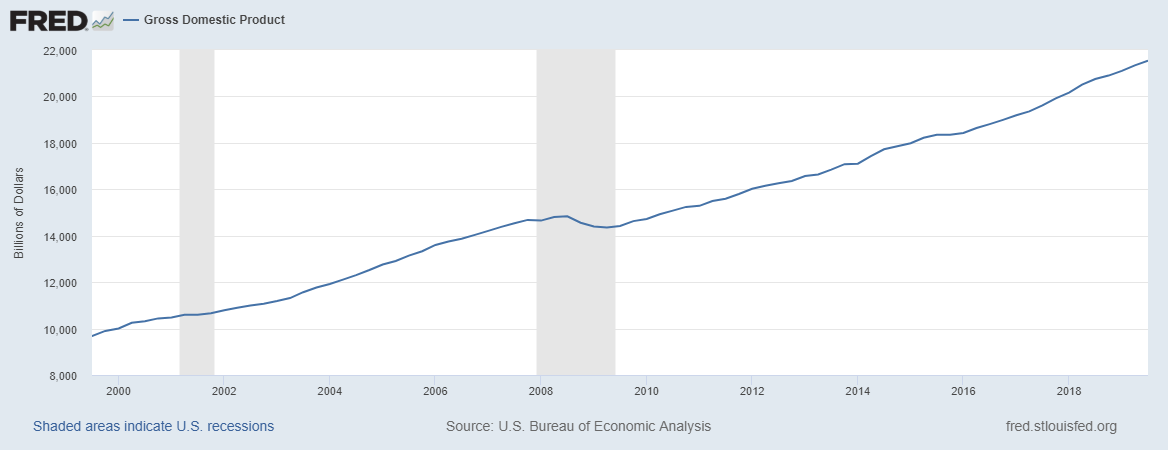
While the drop in December 2019 warehouse/transportation data may be alarming, the current development of warehouses for major eCommerce retailers such as Amazon with potentially over 1000 jobs should result in boosts in these numbers upon their completion. It is time to rethink the importance of the manufacturing jobs numbers and consider transportation & warehousing as the more accurate leading economic indicator in today’s globalized and e-commerce world.




